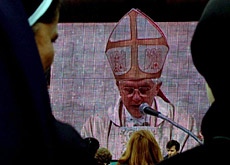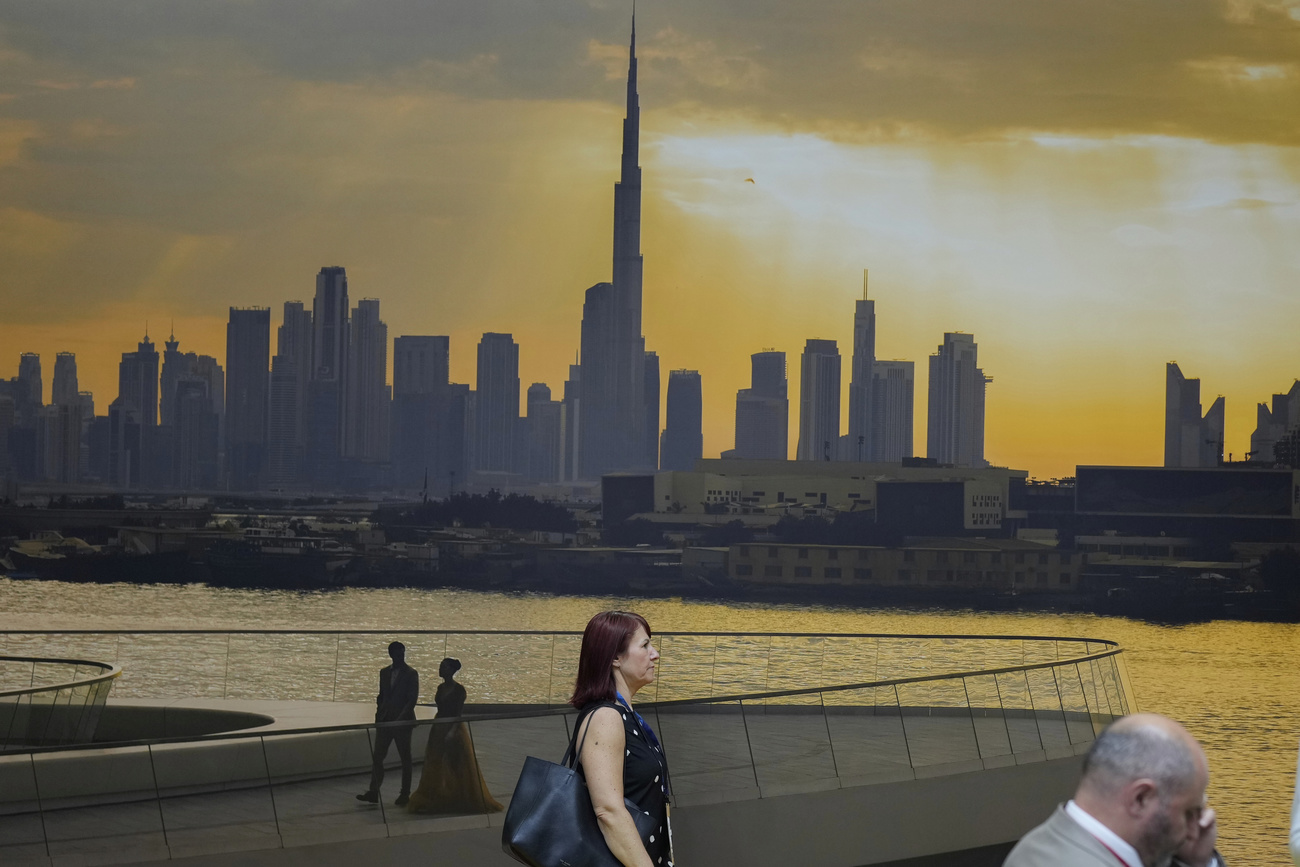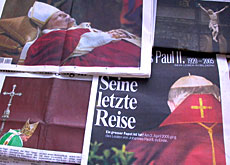Media’s pope coverage reflects global trend

Media coverage of the death of Pope John Paul II reflected his status as a "pop star" pontiff, according to a professor of media studies at Bern University.
In an interview with swissinfo, Roger Blum said that wall-to-wall global coverage of the deaths of personalities was now commonplace.
Blum said that the Swiss media had extensively covered the death of the Pope John Paul II, and the election of his successor Pope Benedict XVI, because of the huge public interest.
But he said there were regional differences in the style of reporting across the country, which could be attributed to religious affiliation.
swissinfo: Was there too much coverage of the events surrounding the pope in Switzerland?
Roger Blum: There was a lot of coverage and that’s logical in Switzerland because we have a lot of Catholics, almost half the population.
But I think the coverage was not very different from other countries because also in [neighbouring] Italy and Germany, in the United States, in Asia, and even in countries where there are no Catholics, this was a very important event.
The Pope was such an internationally recognised personality and a moral instance for many people, especially after the Iraq war, that the media covered it very extensively.
swissinfo: Were then any regional differences in the coverage within Switzerland?
R.B.: It may be that the newspapers of Zurich or Basel were a little more critical than those in Catholic regions like Ticino, central Switzerland or Fribourg. It’s normal to find more critical articles in Protestant regions.
swissinfo: Would you say that such wall-to-wall coverage is a sign of our modern times?
R.B.: Yes, but it depends on the personality. If you have a pope who always stays in Rome, who you have little contact with, it’s very different to a pope like John Paul II who travelled around the world, who was always with people, who was like a pop star.
The death of Diana, Princess of Wales was also a worldwide event because she was very present in the public sphere and a lot of people loved her. It was the same thing with this pope who was a conservative but very modern in his use of the media.
swissinfo: Did the death of Princess Diana signal a change in the way that such events were reported?
R.B.: Maybe, but you can always see that when a lot of people are very sad and thousands of people are following the funeral… the media will cover it. It depends on how much people are interested in it.
swissinfo: So you wouldn’t say that coverage of these types of events has changed over the years?
R.B.: Yes it has changed, but also the interpretation of the office of the pope or the role of a princess or king has changed. We have now public popes and princesses, which we didn’t have before.
swissinfo: And of course the media itself is different now, you’ve got 24-hours news, the internet, so more outlets for coverage.
R.B.: The fact that there are news channels like CNN and Al Jazeera means there is more coverage of more events. They cannot broadcast for 24 hours a day without events which they find to be important.
Another development of modern society is that the media tend to make political events more important than they really are. It’s like one part of the media attracts the other.
When [former Palestinian leader] Yasser Arafat died, some media were already in the Palestinian territories so all the other media also felt they had to go there for the funeral and election of the new president.
swissinfo: Can you see this kind of very dense coverage continuing in the future or do you think people might become tired of it?
R.B.: I think it will continue, but it always depends whether there is a personality with a high news value.
The former Pope had high news value and the new Pope will also have a high news value if he continues to be in contact with the people and travels to other countries. But if he’s only in his office in Rome, I think his news value will be lower.
swissinfo-interview: Isobel Leybold-Johnson
German Cardinal Joseph Ratzinger was elected Pope on Tuesday and has chosen the name of Benedict XVI.
He was formerly the dean of the cardinals and was a close ally of his predecessor, Pope John Paul II, who died on April 2.
Ratzinger was elected on only the second day of a secret meeting of 115 cardinals from 52 countries, including Switzerland.

In compliance with the JTI standards
More: SWI swissinfo.ch certified by the Journalism Trust Initiative












You can find an overview of ongoing debates with our journalists here . Please join us!
If you want to start a conversation about a topic raised in this article or want to report factual errors, email us at english@swissinfo.ch.